Welcome to our IESE MBA Admissions Insider Series, where our goal is to guide prospective applicants through some of the questions you might face during the MBA application process. In Part 1 of this series, we tackle one of the first and most common questions, how do you decide which MBA is the right fit for you? We have enlisted three of our MBA Class of 2019 students to share their thoughts in this blog post.
Meet our panel of students from the MBA Class of 2019!
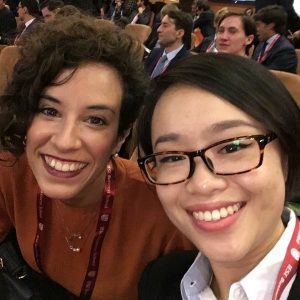
Amber during Orientation Week
Yun (Amber) Xu, China
Pre-MBA: Associate Manager at GSK
Educational Background: Biotechnology
https://www.linkedin.com/in/yun-amber-xu-266706b5/
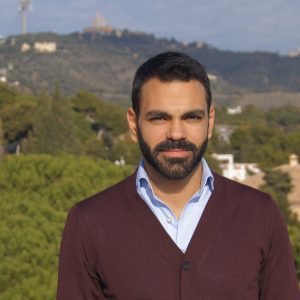
Farid from our North Campus Terrace
Farid J. Rizkallah, France
Pre-MBA: Operational Risk Manager at BNP Paribas
Educational Background: Mechanical Engineering
https://www.linkedin.com/in/faridrizkallah/
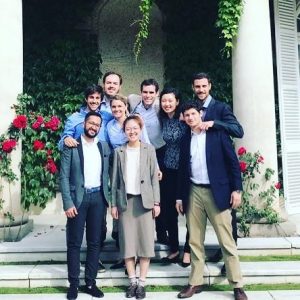
Julie with her team D2
Julie Jin, Germany
Pre-MBA: Manager at Ernst & Young
Educational Background: Economics
https://www.linkedin.com/in/jinjulie/
Q: 1 year vs 2 years, why did you end up choosing our 19-month program?
Amber: There were two reasons why I wanted to do a longer program. First, I majored in science, I had no background in Economics and Finance. I hope to become more business oriented through an MBA. Second, I wanted to spend more time in living in a different country, in immersing in different cultures so having a diverse student body was critical to me.
Farid: For me I felt that one year was too short to allow me to disconnect completely from the job I wanted to do. I needed to take time to reshape myself, review my values, and see what I wanted to do after the MBA. In a longer program, you have the opportunity to have an internship that would allow you to experiment and see if there is something you thought you like and that you’d want to pursue after the MBA. This is something I felt like I would not be able to do in a one year program.
Julie: Like Farid, I knew an intership was also a good way to try something new, especially if you’re coming from banking or consulting. The other thing you would actually like to ask is “What are you actually trying to get out of the MBA experience?”. If you just want a stamp on your resume and you want to get it done as soon as possible then maybe 1 year is good for you. However, if you actually want to make really good friends, have the opportunity to go abroad or study internationally through an exchange then take your time.
Q: US vs Europe, why did you end up deciding on a European business school?
Julie: I only ended up applying to European programs. Think about where you’d like to end up after. If you’d like to work in the US, maybe studying there is advisable but if you are aiming to work in Europe or internationally then this is where those companies would be hiring.
Farid: For me, I really liked learning languages. Being in Europe is a good way to learn a new language, that is one of the main reasons why I came to Spain. Then there are other personal aspects to my decision.
Amber: For me, coming from China, again, it was about the immersion to new and diverse cultures which I knew I would get in IESE.
Q: IESE is well-known for its strength in the case method style of teaching and for some of you, it was an important factor in choosing your MBA. Now that you’ve gone through the first year, could you please elaborate on how the case method helped you?
Farid: I studied Mechanical Engineering. It was very theoretical. What was lacking in my undergrad studies was understanding the practical side – how everything I was learning really applied in real life. I chose IESE mainly because of the case study method. I wanted to learn different perspectives and how it can be applied in my future career. Say for example we are taking up a finance course, sitting in a case methodology class allows you to hear other perspectives from people of different backgrounds to understand how various disciplines like operations, marketing, strategy are all connected and can impact finance. This is not something you will get out of a theoretical or lecture based class.
Julie: For me at the beginning I was a bit skeptical about the case method being the majority of classes but the professor helps you go through what is the theory behind it. The benefit of the case study for me is that you really get to see multiple perspectives on every situation.
Amber: The good thing about diversity and being in a collaborative space is that if you don’t know what is going on in a discussion like Digital Marketing or Capital Markets, you know that one of your classmates knows it and they are very able and willing to help you understand what’s going on.
Q: Why did you finally choose IESE over other schools you applied and got accepted to?
Farid: I ended up choosing IESE mainly because of the culture and also the strong relationship they had in the sector which I wanted to pursue – Consumer Goods.
Julie: It was really the beautiful campus and seeing the people. You can reach out to anybody at IESE. Everyone is super helpful and warm and you cannot see that the same way elsewhere.
Amber: I chose IESE because I learned that the school is actually situated in the city which is not the same for other schools I applied to and it allows you to live very well at a reasonable cost compared to other cities.
Julie: There are great parks, good restaurants. Barcelona is a great place to live in.
Farid: Definitely, living in the city has a huge advantage. It allows you to organize yourself outside of class time. You have access to all the facilities of the city, it is an amazing city, and the weather is great with a beach very close to it. I think it’s a big, big plus if you would like to take some time to breathe before coming back to school
Amber: When I visited IESE, I did a campus tour and an alumni jokingly to;d me, “I went to IESE because we have the best view”.
Q: Any final thoughts to share with prospective applicants?
Amber: Speak to the community, students, faculty and more. I’ve had a great experience. So I hope you will as well!
Julie: There is always something going on and you will always be involved. When you are thinking of doing an MBA program, it requires a lot of self-reflection to understand what you really want out of an MBA program. You want the basics to be there of course.
Farid: There are lots of opportunities here to learn. Reach out. Ask us!
Thank you Amber, Farid and Julie for your insights! Good luck future applicants!
This blog post was adapted from an IESE webinar series. To listen to the panelists answer more questions such as “Which other schools did you apply to?”, watch the full webinar here.
Pursue your dream MBA! Take these next steps today:


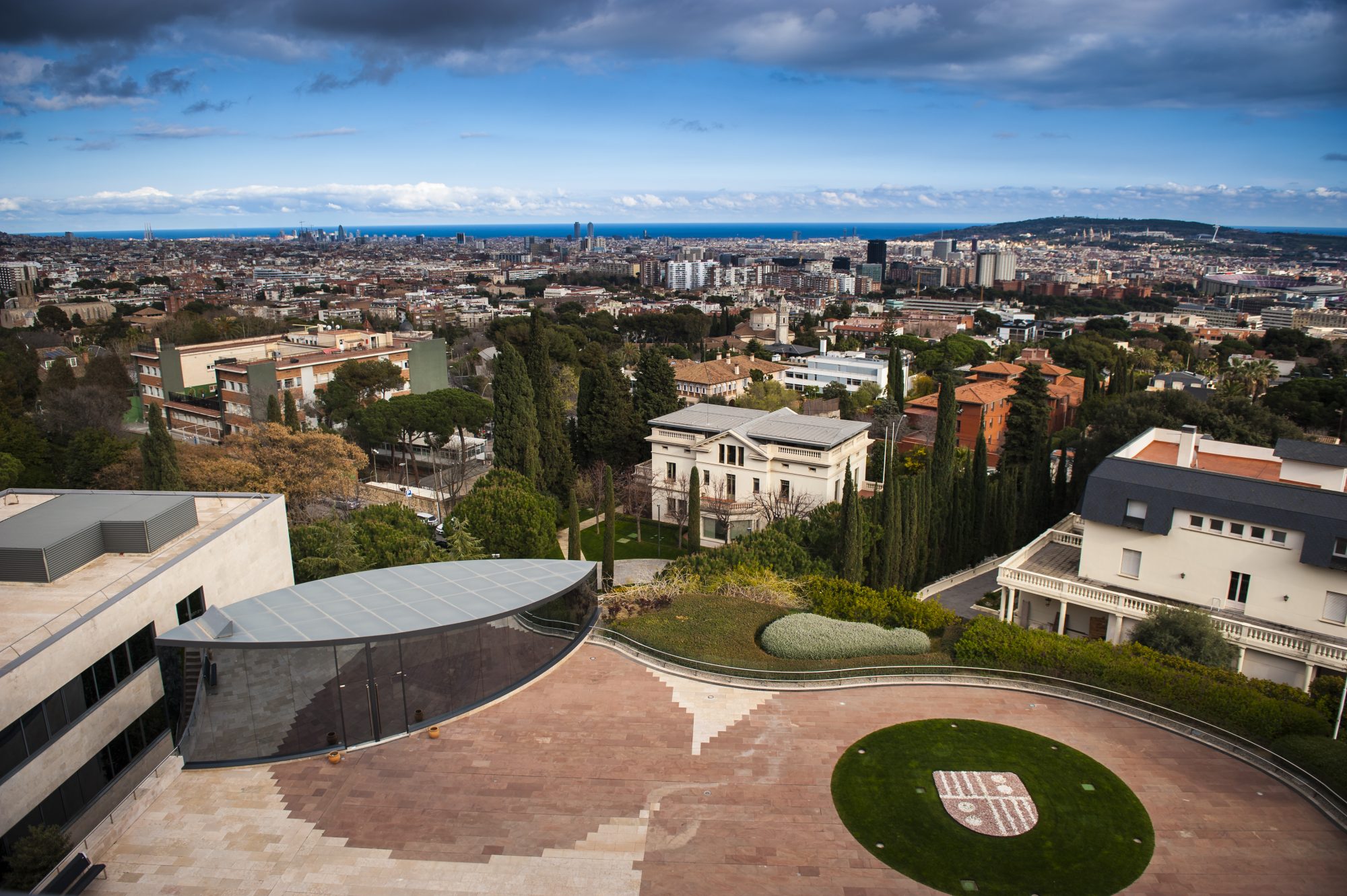


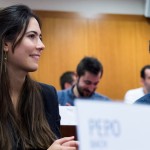


Thanks for this creative piece of advice